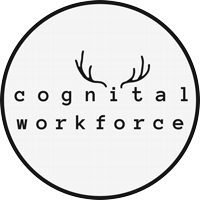Start-ups, Small and Medium Business (SMB) undergo challenges especially when it comes to sourcing the right talent. The decision these businesses make in the growth phase results to either expansion or exit. The aspiration of any investor is to see the business continuously grow. However, to achieve this goal, strategic practices ought to be incorporated. To become competitive, Business SMEs should identify factors that give them competitive advantage. Talent sourcing process greatly influences success of a business and therefore need to ensure that it is done the right way. However, for startups and SMB, recruitment might not be done in the right way due to finances or lack of know-how. Large Corporations are not restricted by finances and so they have been able to quickly leverage the global trend of Recruitment Process Outsourcing (RPO) for more than a decade. Consulting a RPO specialist to manage internal recruitment activities either partly or in whole proves to be beneficial. For this reason, developments in the field of recruitment are being introduced everyday with the newest being RPO on Demand or Recruitment As A Service. Start-ups and Small Businesses no longer have to possess a well-staffed recruitment team but can get this service from firms specializing in RPO and Talen sourcing. The benefit of outsourcing is that it greatly improves the quality of staff in a business. Also, it is possible for SMEs to get staff support on demand unlike established organizations which has the potential to employ throughout the year. SMEs can either get on demand recruitment services of completely outsource recruitment services depending on their needs.
Let us understand how RPO works
Probably most people have heard the term RPO but do not understand how it works. Well, let’s get to know this process that possess numerous benefits especially to the Business SMEs. The first important element of RPO is source. Deep sourcing expertise is carried out to ensure that RPO providers will address the specific need for a business. The reason is that despite businesses being in the same industry, their needs might vary from each other.
Screening cannot be eliminated in the process as it ensures that the right fit is attracted ad retained in the workplace. It entails carrying out reference checks, background checks, interviews and skill assessment. There is no any other way for a RPO provider to determine whether an employee matches the needs of a business rather than conducting rigorous screening. Currently, businesses are also requesting for culture screening. This is basically in terms of work culture and not personal beliefs and values. It ensures that the candidates presented to the client fit into the work culture of that particular business.
Recruitment is carried out by the RPO provider who are specialized in recruiting equally active and passive candidates. In this case, RPO provider will handle salary negotiations, promote a consistent brand on behalf of the business, maintain quality control and schedule interviews.
A good RPO provider constantly reports to the client on any development during the process. It ensures that the business is also involved in the process and that they are able to offer insight on certain things. Some of the metrics that RPO should consider reporting to the client are productivity, cost per hire, retention rates and time to fill.

